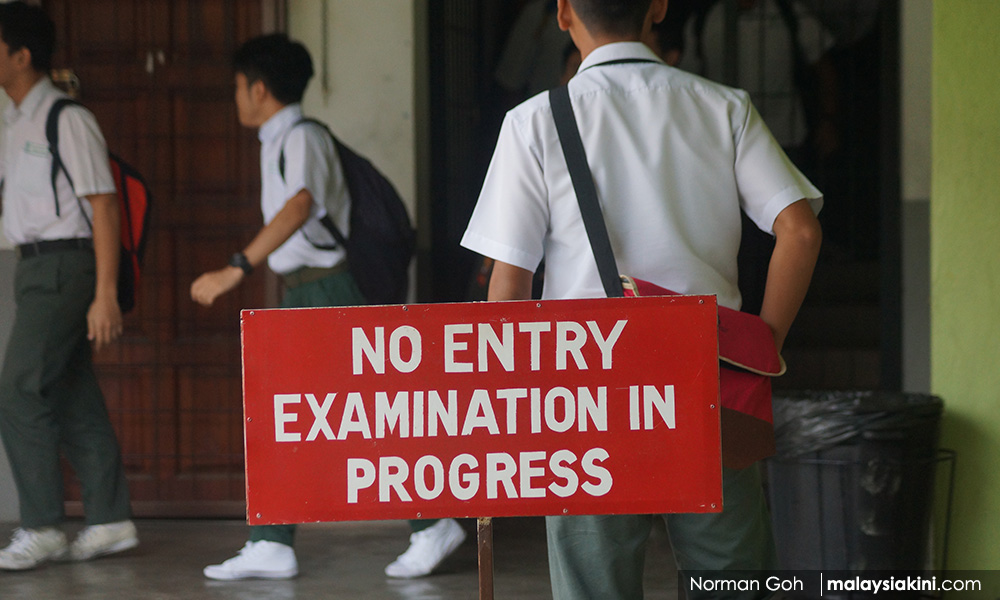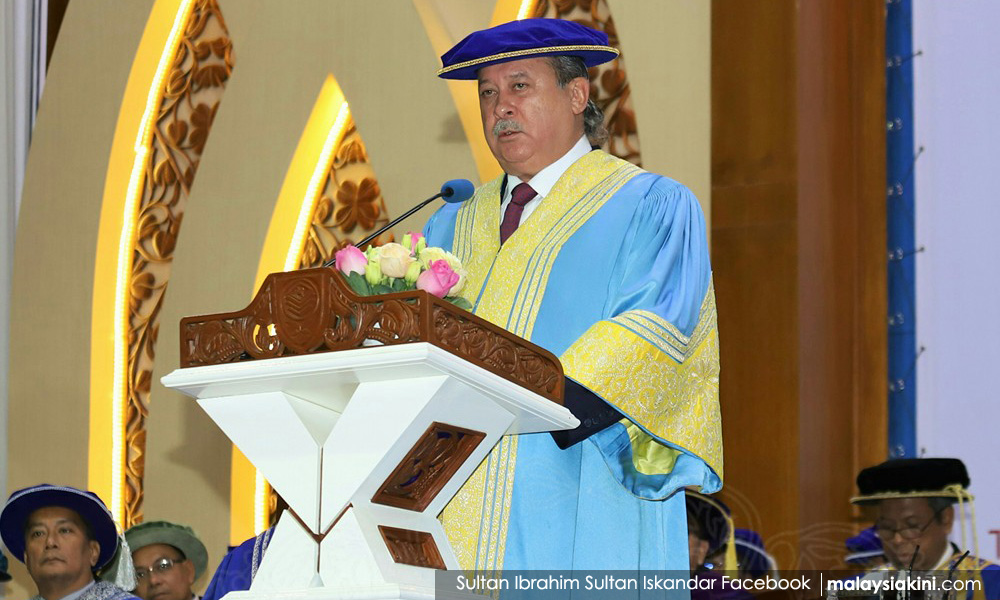
The past few weeks has seen renewed attention on the re-establishment of English medium schools (EMS) in the country.
A combination of concerned and highly credible stake players has come out in favour of the return to what was previously not just a medium of national schooling for young Malaysians.
EMS in years past was also the source of most the country's leadership in economy and society, and a major reason for the country’s high international standing.
Led by Sultan of Johor Sultan Ibrahim Sultan Iskandar, the campaign for EMS is now supported by Minister in the Prime Minister’s Department Abdul Rahman Dahlan and concerned civil society leaders from the G25 group.
For a long time, it was the indefatigable Noor Azimah Abdul Rahim, chairman of the Parent Action Group for Education (PAGE), whose group waged an often-lonely battle to promote the expanded use of English in our national educational system.
Today, the drive to restore ECMs to similar status as Chinese and Tamil schools in the national system has expanded. But it needs to be taken up by our political leaders if it is to succeed.
For what has been standing in its way - and it continues today - has been politics which has triumphed over national interest and the freedom for parents to choose the medium of instruction they want for their children.
As pointed out by the Johor Sultan, there are politicians who are in “self-denial” and who choose to play politics with education by being “heroes of their races”.

“They talk about 'nationalism' but they too send their children to boarding schools in Australia and the United Kingdom.”
The sultan has also expressed confidence that “if we have an education system based on a single stream for students from a young age, we will be able to create a community which is more harmonious and can work together to face challenges in the future.”
Malay disadvantage
Although all communities have been disadvantaged by the absence of English medium schools in the national system, it is beyond doubt that it is the Malay community which has been most handicapped or punished by the political policy and insistence by misguided cultural zealots for the Malay masses to be restricted in their choice of schools to Malay medium ones, or to Islamic schools where the medium of instruction is in Arabic.
Should a study be undertaken of the class divide which has emerged in Malay society during the last two or three decades, it is very likely that it will find that a contributory – perhaps the major – factor has been the ability of upper-class Malays to access an English education either in the MARA system or through private English education medium schools, locally and abroad.
Students in the national Malay medium schools and graduates from public universities with Malay as the medium of instruction are also severely handicapped in our local private sector employment where English language fluency is a prerequisite, especially for higher-end jobs.
They are also increasingly marginalised in this era of global markets and competition where a command and mastery of the English language is indispensable to knowledge acquisition and upward mobility.
This fact of growing Malay disadvantage and deepening socio-economic inequality - should there be no policy change - was not spelt out by the influential G25 grouping in its recent press statement which supported the call by Johoreans for English medium schools.
But it was probably in the minds of G25 members as they seek a return to establishing Malaysia as a bilingual country with Bahasa Melayu as the national language and English the second language as is found in many of the most advanced non-English speaking nations of the world.

In a press statement, G25 noted that as a trading nation, Malaysia needs to have a workforce with a high proficiency in English.
“G25 supports the establishment of the EMS as an alternative stream under the national school system. English is a language for acquiring knowledge. We are in support of initiatives that will help in the growth of the economy and improve the well-being of Malaysians”
Taking Finland as an example, the group has argued that “Finland’s education success is based on ensuring that everyone has equal opportunities to study.”
This is not the case in Malaysia where there is no level playing field between the private and national school systems and where parents who wish to have their children enrolled in English medium schools cannot afford the expensive fees that are the norm for private schools.
G25’s call needs to be emphasised: “We need to learn from past mistakes and ensure that the implementation of the English-medium schools follows a model with a proven track record”.
LIM TECK GHEE is a retired academician and is currently public policy analyst.- Mkini
No comments:
Post a Comment
Note: Only a member of this blog may post a comment.